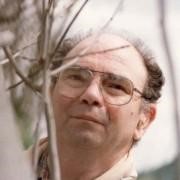Remembering Prof. David Wool (1933–2020)

David Wool was born in 1933 in Tel Aviv. From a young age, he was captivated by the natural world, sparking a lifelong passion for its mysteries. As an elementary school student, he collected insects and shells and had the privilege of meeting Dr. Alexander Barash, who would later become a professor at Tel Aviv University. David completed his high school education in 1950 and soon after enlisted in the army, joining the Nahal.
After his military service, David and his friends joined Kibbutz Tzora, where he lived until 1962. There, he established a nature room to display his collections of insects, reptiles, and birds—many of which he prepared himself after taking a short taxidermy course at the Ussishkin Museum in Kibbutz Dan and earning a taxidermy license from Tel Aviv University. David Wool never hunted; instead, he worked with material found around the kibbutz.
In 1961, David Wool began his undergraduate studies in biology at Tel Aviv University. In his second year of studies, he accepted a position as a junior instructor in entomology under Prof. Joshua Kugler. Despite many financial challenges, he balanced full-time work with part-time studies, eventually earning a Master of Science degree. His research focused on chironomid midges in Lake Hula.
In 1966, David began his doctoral studies at the University of Kansas under Prof. Robert Sokal, whom he had met during the latter’s sabbatical in Israel. David's doctoral research explored the population genetics and evolution of the flour beetle, Tribolium, culminating in a Ph.D. in 1969. He then assisted Prof. Sokal in relocating his lab to New York University at Stony Brook.
In 1970, after spending six months at Stony Brook, David returned to Israel and joined the Department of Zoology at Tel Aviv University. During his early years at the university, he continued his research on Tribolium and taught courses in evolution, population genetics, and biostatistics. David was instrumental in making biostatistics a mandatory course for graduate students.
In later years, David Wool became interested in the biology of gall aphids. Throughout his career, he published over 150 articles, many of which are still widely cited today. His most cited papers deal with the genetics and ecology of gall-inducing insects. He also collaborated with colleagues and former students, resulting in widely recognized papers in other areas of evolutionary biology. David authored two books, originally written in Hebrew and later translated into English: The Driving Forces in Evolution (1985), translated in 2006, and Chapters in the History of the Theory of Evolution (2010), published in English in 2020 as Milestones in the Evolving Theory of Evolution.
David's interest in Charles Darwin and the history of evolutionary biology deepened after visiting Darwin's Down House, in 1989. Over the years, he became an expert on Darwin's life and writings, the history of evolutionary theory, and the contributions of Darwin's predecessors and successors to evolutionary thought. He lectured extensively on these topics, continuing even after his retirement in 2001.
David was a frequent participant in conferences worldwide and took several sabbaticals. He maintained close relationships with all his students, many of whom went on to become professors themselves. David Wool’s legacy endures through his scientific contributions and the many lives he touched throughout his life and career.

